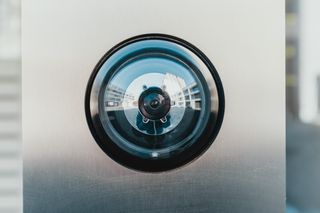How to increase online privacy in 5 easy steps?
Privacy on the Internet is a subject that keeps a huge number of Internet users awake at night. Maintaining it is not easy, especially when user data is valuable material for advertisers, for example. However, as ordinary people who use the web on a daily basis, we are able to erase some of the traces we leave behind on the Internet. How to do it?
5 ways to increase your online privacy today
1. Be careful what you share
Who among us does not use social media? Reasonably sharing information with friends, family and acquaintances is not a bad thing, but it is worth remembering that some data should remain private. Not every exit we make needs to be documented, and the date of birth of our partner or child should also remain protected.
Confidential data that we share ourselves can be a point of attack for cybercriminals. Many people do not set strong passwords for their accounts, and instead use, for example, the names of children, partners or beloved pets – these are relatively easy to guess if the same information appears on public profiles. What's more, excessive sharing of one's travel plans or kids' daily lives can pose a threat that goes beyond cyberspace.
2. Connect to the network through a VPN
An online VPN is a tool that creates a secure tunnel between you and the Internet. How it increases your online privacy? Well, the service provider with whom we connect via VPN does not "see" us – that is, our IP address. From his perspective, we are someone else entirely, namely the VPN server through which we connect to the Internet – we use his address and therefore his location.
This arrangement means that Internet service owners cannot use our data (including our IP address), for example, to create personalized ads tailored to our needs. VPN tunnels are also encrypted, so the data sent through them is safe. VPN is also a useful tool when traveling – when we use public Wi-Fi networks (at airports, hotels), we are not sure that we are properly secured by their administrators. An encrypted VPN tunnel protects our data in such situations as well.
3. Don't accept all cookies
Each of us is familiar, after all, with the rather persistent windows informing us about the use of the so called "privacy". Cookies by Internet service owners. The need to inform users about cookies stems from RODO regulations. Most cookies are necessary for websites to function properly, and are stored on Internet users' devices – so they do not pose a threat to privacy. However, there are different types of cookies, including some that track our online activities to then assist advertisers in suggesting us specific products that match our activity.
What we can do with it? It is possible to disable cookies completely in the browser settings, although this is a rather radical solution that negatively affects the comfort of using the web. A better solution is to disable only "tracking" cookies, which can also be done in the settings of some browsers.
4. Consider changing apps
Some popularly used mobile apps (for example, instant messaging) are notorious for collecting users' personal data, though they rarely pay attention to it. Some of them openly ask for permissions that are not needed at all to perform their intended tasks. Fortunately, there are plenty of programs on the market that are created independently (not affiliated with large corporations) and care about the privacy of those who use them.
It's worth taking a moment and checking which apps on your phone you don't need or can change to a more secure one. For example, for many activities you don't need separate programs at all – a regular (but privacy-oriented) web browser is enough.
5. Turn off location in mobile devices
We use smartphone location on a daily basis if only to be able to use GPS or similar technologies. However, we don't always remember to turn it off when it is no longer needed. What's wrong with it? Well, companies are eager to collect all the user information they can get. This also applies to data on the physical location of your device.
The enabled location on the phone is able to reveal everything about us – if someone traced the location of our device on a map, they would find out where we live, work, where we drop our kids off or how we spend our free time. So remember to turn off location tracking when you don't need it. By the way, slow down the battery drain on your smartphone.
Conclusion
Privacy on the Internet is still a fairly new issue. Finally, the network itself is developing at a pace that is hard to keep up with. Just two decades ago, no one thought they would have to worry about tracking. The law is chasing technology and we are already seeing changes regarding cookies, for example. However, it is worth making an effort yourself to strengthen your own privacy. It is not difficult, takes literally a few moments, and undoubtedly brings the benefits themselves.
